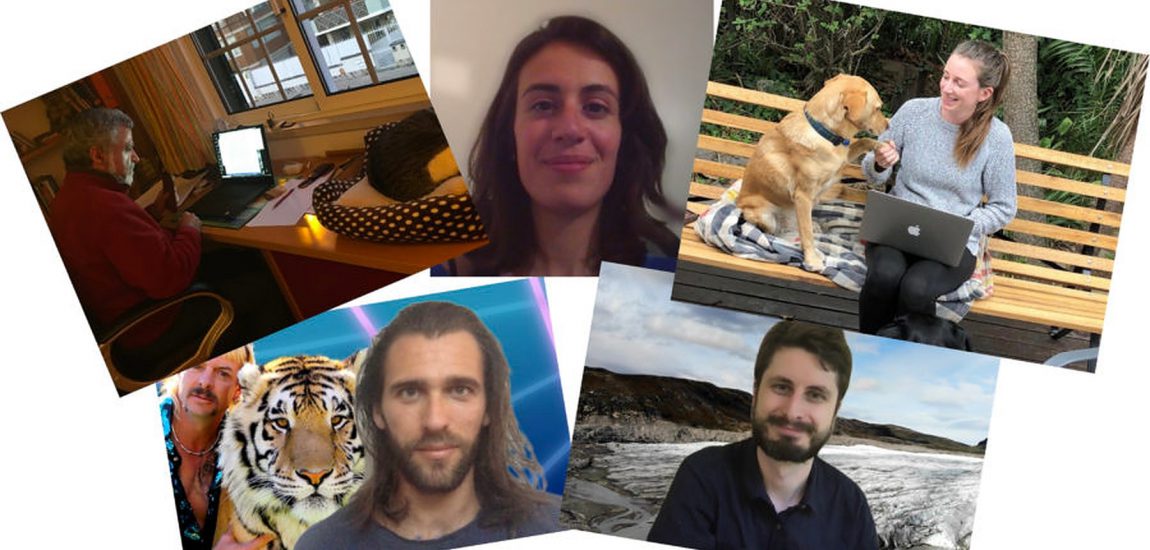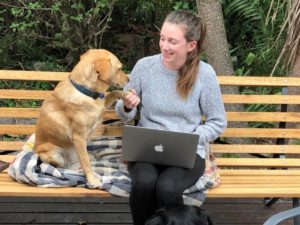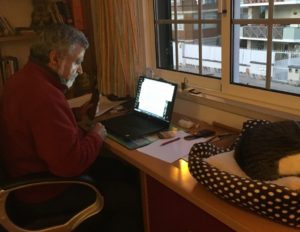
Geochemists in the time of COVID-19: part 1
In this new series on the EAG blogosphere, geochemists from around the world tell us about their experiences during this difficult period of the COVID-19 pandemic: how it has affected their academic and research activities, and how they have been adjusting to new ways of life.
In the first two posts below, Rosalie Tostevin in South Africa discusses the shift to remote teaching and Mário Gonçalves in Portugal describes how he has been adapting to lockdown and the challenge that one of his international students had to face.
Rosalie Tostevin, University of Cape Town, South Africa

On March 28th, South Africa entered lock down, with people ordered to stay home unless collecting social grants, buying food or seeking medical care. Soon after, the University of Cape Town transitioned to remote emergency teaching. Along with universities around the world, we are navigating some new challenges.
Connectivity was one of our biggest concerns. Less than half of my students have Wi-Fi at home. The rest rely on 4G, but some parts of the country lose signal for hours or even days at a time. To help level the playing field, we are keeping courses asynchronous and low bandwidth. This rules out pre-recorded videos and Zoom calls. Instead, we upload weekly packages of study materials in pdf format with explanatory notes.
While these adaptations will enable nearly all of our students to participate, their learning environments are still grossly unequal. On campus we could remove at least some barriers for disadvantaged students. But now, many do not have access to a quiet, undisturbed workspace. Others are juggling caring responsibilities. Some are in unsafe homes or neighbourhoods. In recognition of this, examinations have been side-lined in favour of continuous open book assessment, and grades will be pass/fail.
Remote teaching is a poor substitute for the classroom. Lecturers are losing valuable live feedback from those expressions of confusion or boredom that trigger us to change tack. We will struggle to form a personal connection with the students, and as a result, they may feel less confident approaching us for help. Worst of all, students are losing their community. Much of their learning is peer-to-peer and takes place in languages other than English.
The next term will be tough for students and lecturers, but the time invested in responding to this short-term emergency need not be wasted. It’s an opportunity to permanently transform the way we teach. In the future, we can be more flexible, accommodate diverse learning styles, and support remote teaching for students with disabilities, jobs or caring responsibilities. As they say in disaster management circles, we have a chance to “build back better”.
Mário Gonçalves, University of Lisbon, Portugal
I had just closed what is usually a busy semester extending into early March with one graduate and 3 undergraduate courses and was about to finally get to grips with a project proposal to submit by end March. Emails had already started rushing in with restrictions for faculty events and travel plans for the following weeks and months.
Then things precipitated, and the University decided to start closing activities before lockdown took place. I still went on a one-day fieldwork trip with an MSc student, and two days later I was working from home. Everything was suspended and lab work stopped, affecting students and researchers alike. At home I had to reorganize my space as my wife, also an academic, immediately started online lectures. We are fortunate to have space at home for each of us. But routines had to be adapted, and it took me some time before I could re-enter my own.
A colleague and I also had with us an ERASMUS+ student from Ghana who is doing his PhD in Turkey and is based there with his family. We advised him to fly back home as quickly as possible, as Portugal would soon close its borders. He picked up a few belongings from the faculty but most of his samples were left in the labs. After flight cancellations and some anxiety, he boarded a flight to Istanbul on the day after Portugal entered a state of emergency. It was a Saturday morning when I received a message from him saying he had arrived safely but was denied entry to Turkey and that the police wanted to fly him back to Lisbon. In the end, it required a call from the director of his University to Turkish immigration to resolve the situation.
Meanwhile, graduate students of our department got organized and are hosting remote seminars amongst themselves. I gradually started to get into my own rhythm and thankfully project proposal deadlines were extended by a month. I have never felt a relaxed or a less stressful day since, but my neighbourhood walks help me escape this strange reality we are living in.

